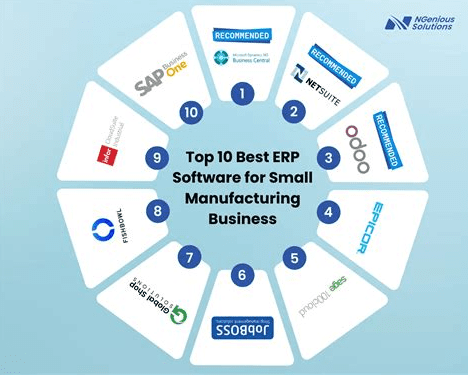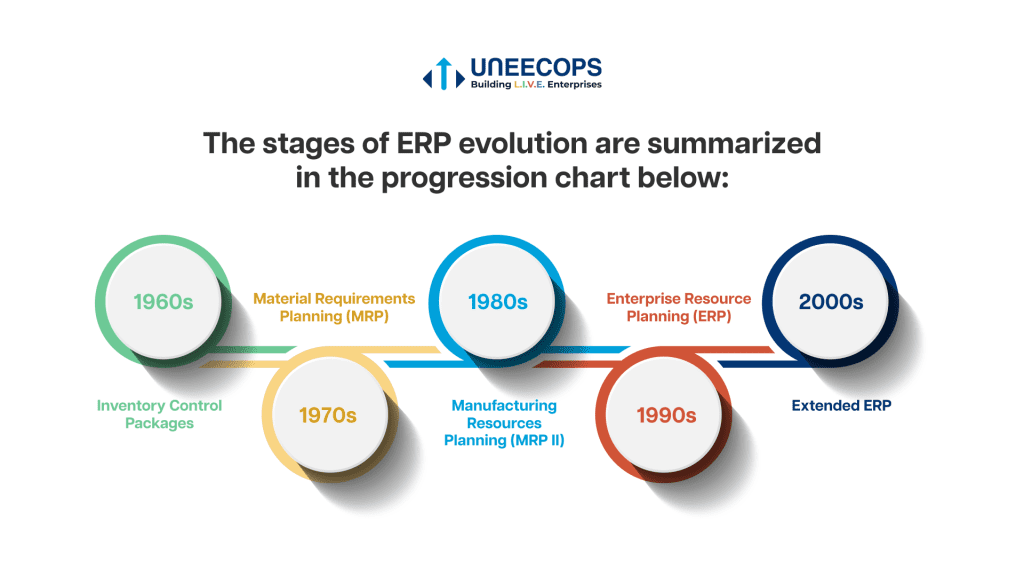Best Erp For Small Manufacturing Business
Best ERP Systems for Small Manufacturing Businesses
Welcome, small manufacturing business owners! In today’s fast-paced and competitive market, having the right ERP (Enterprise Resource Planning) system in place can make all the difference in streamlining your operations and improving efficiency. With so many options out there, it can be overwhelming to choose the best ERP system for your specific needs. That’s why we’ve compiled a list of the top ERP systems that are tailor-made for small manufacturing businesses, taking into consideration factors such as affordability, user-friendliness, and key features. Let’s dive in and find the perfect solution for your business!
Understanding the needs of small manufacturing businesses
Small manufacturing businesses have unique challenges and requirements when it comes to managing their operations. Unlike larger companies, small manufacturers typically have limited resources, both in terms of budget and manpower, which can make it difficult to invest in expensive enterprise resource planning (ERP) systems. However, this does not mean that small manufacturers should settle for subpar solutions that do not meet their specific needs.
One of the main requirements for small manufacturing businesses is the ability to streamline their processes and improve efficiency. This is crucial for maximizing productivity and minimizing costs, especially in a competitive market. An ERP system designed for small manufacturers should include features that automate key tasks such as inventory management, production scheduling, and order tracking. By streamlining these processes, small manufacturers can reduce the risk of errors and delays, ultimately improving their bottom line.
Another important need for small manufacturing businesses is the ability to adapt to changing market conditions. In today’s fast-paced business environment, it is essential for manufacturers to be agile and responsive to customer demands. An ERP system that is flexible and scalable can help small manufacturers quickly adjust their operations to meet changing requirements, such as shifting production priorities or fluctuating demand. Additionally, the ability to generate real-time reports and analytics can provide small manufacturers with valuable insights into their business performance, allowing them to make informed decisions and stay ahead of the competition.
Cost is also a major consideration for small manufacturing businesses when choosing an ERP system. Many small manufacturers operate on tight budgets and cannot afford to invest in expensive software solutions. Therefore, it is important for small manufacturers to look for ERP systems that offer affordable pricing plans, as well as flexible payment options such as monthly subscriptions or pay-as-you-go models. Additionally, small manufacturers should consider the total cost of ownership, including implementation and support fees, to ensure that the ERP system remains cost-effective in the long run.
In conclusion, small manufacturing businesses have unique needs that must be addressed when selecting an ERP system. By understanding these needs and choosing a system that is tailored to their specific requirements, small manufacturers can improve efficiency, adaptability, and cost-effectiveness in their operations.
Key features to look for in an ERP system for small manufacturing businesses
When it comes to selecting an ERP system for a small manufacturing business, there are several key features that you should look for to ensure that you are getting the most out of your investment. Here are some of the key features that you should consider:
1. Scalability: One of the most important features to look for in an ERP system for a small manufacturing business is scalability. As your business grows, you will need a system that can grow with you. Look for an ERP system that can easily accommodate additional users, more data, and increased transaction volumes without any significant impact on performance. This will ensure that your ERP system remains effective and efficient as your business expands.
2. Customization options: Another important feature to look for in an ERP system for a small manufacturing business is customization options. Every business is unique, and your ERP system should be able to adapt to your specific needs and requirements. Look for a system that offers a high degree of customization, allowing you to tailor the system to fit your business processes and workflows. This will help you maximize the efficiency and effectiveness of your ERP system, leading to improved productivity and profitability.
3. Integration capabilities: In today’s interconnected world, it is essential for your ERP system to be able to integrate seamlessly with other software applications and systems that your business relies on. Look for an ERP system that offers robust integration capabilities, allowing you to connect your ERP system with your CRM, e-commerce platform, accounting software, and any other systems that you use on a regular basis. This will streamline your business operations and processes, leading to improved efficiency and accuracy.
4. Mobile accessibility: With the increasing prevalence of remote work and mobile technology, it is crucial for your ERP system to be accessible from anywhere, at any time. Look for an ERP system that offers mobile accessibility, allowing you and your employees to access key business data and information on-the-go. This will empower your team to make informed decisions and take action quickly, leading to improved business agility and responsiveness.
5. Reporting and analytics tools: Data is crucial for making informed business decisions, and your ERP system should provide robust reporting and analytics tools to help you make sense of your data. Look for an ERP system that offers advanced reporting capabilities, allowing you to generate custom reports, track key performance indicators, and gain valuable insights into your business operations. This will enable you to identify trends, spot opportunities, and address challenges proactively, leading to improved business performance and competitiveness.
Top ERP systems tailored for small manufacturing businesses
When it comes to selecting an ERP system for a small manufacturing business, there are a few key players that stand out in terms of functionality and affordability. These top ERP systems are specifically tailored to meet the unique needs of small manufacturing businesses, providing them with the tools they need to streamline their operations, improve efficiency, and drive growth.
1. SAP Business One: SAP Business One is a popular ERP solution for small manufacturing businesses due to its robust features and scalability. This system offers a range of modules that cover all aspects of manufacturing, including inventory management, production planning, and quality control. SAP Business One also integrates seamlessly with other SAP products, enabling small manufacturers to take advantage of the full suite of SAP solutions.
2. Microsoft Dynamics 365 Business Central: Microsoft Dynamics 365 Business Central is another top ERP system for small manufacturing businesses. This cloud-based solution offers a user-friendly interface and a wide range of features designed to streamline manufacturing processes, including resource planning, demand forecasting, and production scheduling. With its integration with other Microsoft products such as Office 365 and Power BI, small manufacturers can easily access real-time data and insights to make informed decisions.
3. NetSuite: NetSuite is a cloud-based ERP system that is well-suited for small manufacturing businesses looking to streamline their operations and drive growth. With modules for inventory management, supply chain management, and financials, NetSuite offers a comprehensive solution that can help small manufacturers improve efficiency and visibility across their entire organization. Additionally, NetSuite’s scalability makes it a great option for small manufacturers looking to expand their operations in the future.
Benefits of implementing an ERP system in a small manufacturing business
Implementing an ERP system in a small manufacturing business can provide numerous benefits that can help improve efficiency, increase productivity, and streamline operations. Here are some key advantages of integrating an ERP system into your small manufacturing business:
1. Streamlined Processes: One of the major benefits of implementing an ERP system is the ability to streamline processes. By centralizing all your business operations into one integrated system, you can eliminate manual processes, reduce paperwork, and improve overall efficiency. This can help your small manufacturing business save time and resources, allowing you to focus on more strategic tasks.
2. Improved Data Accuracy: With an ERP system, all your business data is stored in one centralized database, which helps to ensure data accuracy and consistency. This can eliminate the risk of errors due to manual data entry and allow you to make more informed decisions based on real-time data. Improved data accuracy can also help you avoid costly mistakes and improve overall business performance.
3. Enhanced Visibility: Another benefit of implementing an ERP system is the enhanced visibility it provides into your business operations. With real-time access to key performance indicators, inventory levels, sales data, and production schedules, you can make more informed decisions and quickly respond to changes in the market. This increased visibility can help your small manufacturing business stay competitive and agile in a fast-paced industry.
4. Cost Savings: Implementing an ERP system can also lead to cost savings for your small manufacturing business. By streamlining processes, improving data accuracy, and enhancing visibility, you can reduce operational costs, lower overhead expenses, and minimize waste. Additionally, an ERP system can help you better manage inventory, reduce stockouts, and optimize production schedules, leading to cost efficiencies and improved profit margins.
5. Scalability: As your small manufacturing business grows, an ERP system can easily scale to meet your evolving needs. Whether you need to add new users, expand into new markets, or introduce new product lines, an ERP system can adapt to support your business growth. This scalability can help you future-proof your operations and ensure that your small manufacturing business remains competitive and profitable over the long term.
In conclusion, implementing an ERP system in a small manufacturing business can provide a wide range of benefits, from streamlining processes and improving data accuracy to enhancing visibility and enabling cost savings. By leveraging the power of an ERP system, your small manufacturing business can achieve greater efficiency, productivity, and profitability in today’s competitive marketplace.
How to choose the best ERP solution for your small manufacturing business
Choosing the best ERP solution for your small manufacturing business can be a daunting task, but it is crucial for streamlining your operations and increasing efficiency. Here are some key factors to consider when making your decision:
1. Identify your specific business needs: Before selecting an ERP solution, it is essential to identify your specific business requirements. Consider factors such as the size of your business, the number of employees, the complexity of your manufacturing processes, and any unique industry-specific requirements.
2. Evaluate the scalability of the ERP system: As your small manufacturing business grows, the ERP system should be able to grow with it. Look for a solution that is scalable and can easily accommodate future expansion without requiring a complete overhaul of your system.
3. Consider the user-friendliness of the ERP system: It is important to choose an ERP solution that is user-friendly and intuitive for your employees to use. A complex system that requires extensive training can lead to resistance from your staff and hinder adoption.
4. Assess the integration capabilities of the ERP system: Your ERP system should be able to seamlessly integrate with your existing software and systems, such as your accounting software, CRM system, and manufacturing equipment. This will ensure smooth communication and data flow across all areas of your business.
5. Take into account the cost of the ERP system: Cost is a significant consideration for small manufacturing businesses, so it is important to choose an ERP solution that fits within your budget. In addition to the initial purchase price, consider ongoing costs such as maintenance, updates, and support. It is also important to factor in the potential return on investment that the ERP system can provide in terms of increased efficiency and reduced operational costs.
By carefully considering these factors and doing thorough research, you can choose the best ERP solution for your small manufacturing business that will help you streamline your operations, improve productivity, and set the foundation for future growth.






